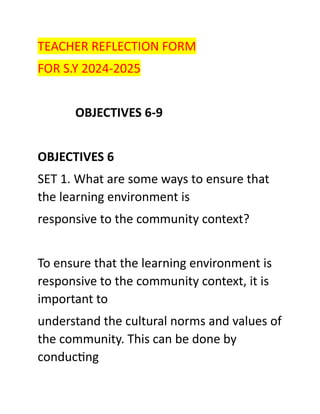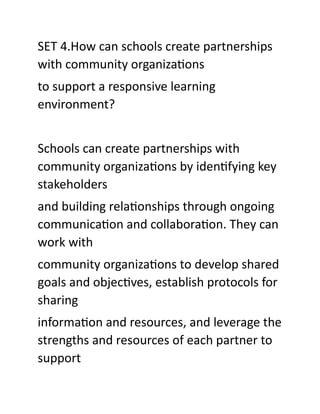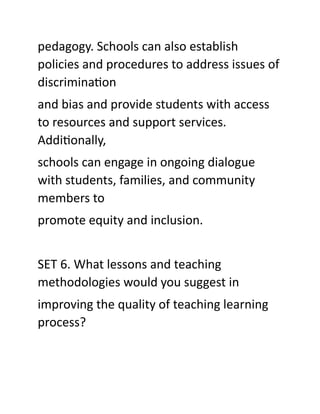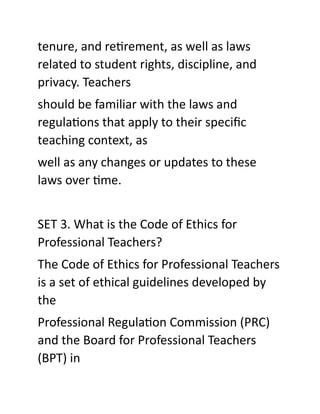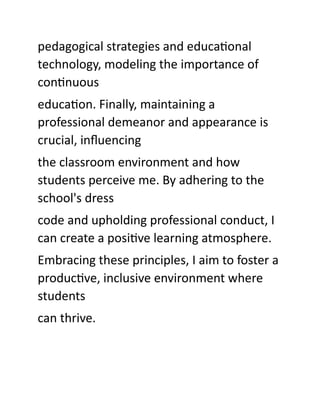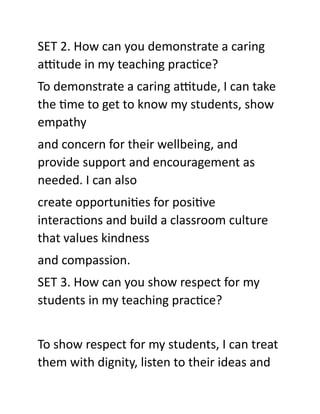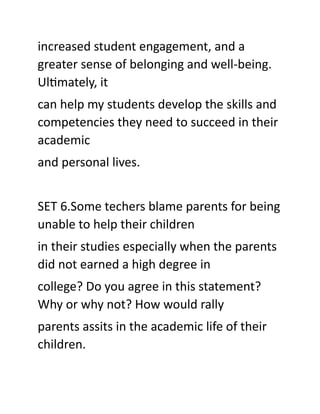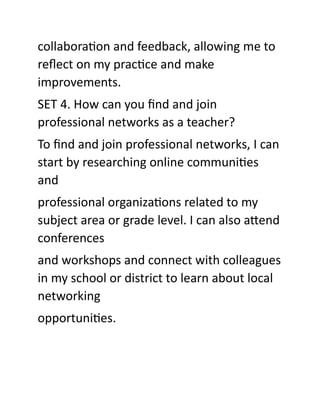This document contains a teacher reflection form with objectives and sets of questions related to creating a responsive learning environment, professional responsibilities of teachers, and participating in professional networks. It discusses ensuring the learning environment is responsive to the community context by understanding cultural norms, communicating effectively with families, incorporating students' cultural backgrounds, addressing issues of social justice, and reviewing laws and regulations regarding the teaching profession. It emphasizes exhibiting caring attitudes, respect, integrity, and participating in professional networks to enhance teaching practice and stay informed on best practices.
